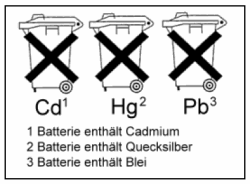Customer Information
Our customer services are here to help and advise you on our different products or to help you place your order : Please send an email to info@designyu.de
DesignYu. Designstore
Marianne Labella, St. Georg Str. 9c, D-85368 Moosburg an der Isar
Email: info@designyu.de
USt-ID: DE318055397
Our Payment Conditions
- bank transfer (3% discount) in advance
- credit card (Visa, MasterCard) - the amount will be charged by placing your order.
DesignYu accepts for orders with delivery within Germany and Austria also payment on delivery (up to an amount of 400 € + 5 € payment on delivery fee).
DesignYu offers a 3% discount if the payment will be effected via bank tranfer.
Safe Payment
Your payment is secured by RapidSSL up to 256-bit SSL. Our partner regarding the credit card payments is Concardis GmbH.
Delivery Costs
The delivery within Germany and other countries of the European Community like Austria, Italy, France, The Netherlands, Belgium, Luxembourg is free.
DesignYu will charge € 20 for delivery to Finland and Denmark.
There are no additional delivery costs!
DesignYu will charge € 25 for delivery to Switzerland. Costs for taxes, import tax, etc. has to be paid by the customer. We will refund the 19% tax after receiving the order and payment to our customer and send asap an taxfree invoice.
For delivery to all other countries please contact us - in most cases the delivery costs will not exeed the 7% of the purchase amount.
The goods will be shipped with DHL, UPS, GLS or special shipping companies.
Delivery Time
DesignYu will inform the customer within 1-5 days after receiving the order about the exact delivery time - by phone or by e-mail.
You can find the delivery time at the end oft the product description (More Information). If you are not sure regarding the delivery time please contact us by phone or by email.
Disposal
Batteries
In the delivery of many devices, are batteries, that serve for example to the business of remote controls, clocks etc. Also in the devices themselves, batteries or rechargeable batteries can be incorporated firmly. In connection with the sales and marketing of these batteries or rechargeable batteries, DesignYu is obligated in accordance with battery ordinance to refer consumer to the following:
Batteries and rechargeable batteries do not belong into the household waste and does not dispose on this way. Since 1998 the battery ordinance has obligated to this, consumed batteries and rechargeable batteries exclusively over the trade or the collecting places established specially for that.
Batteries are occupied with the symbol of the "slashed trashcan" – similarly the following - and one of the chemical symbols cd (= battery contains Cadmium), Hg (= battery contains mercury or Pb (= battery contains lead).
DesignYu disposes the needed batteries and rechargeable batteries environmentally and gratuitous if these are sent to DesignYu freely house, i.e. sufficiently stamped, to the address indicated above. The withdrawal obligation is restricted in accordance with battery ordinance to batteries or rechargeable batteries, which DesignYu banished, as well as on consumer usual quantities.
Reference to lithium batteries/rechargeable battery: In the return of lithium batteries or -rechargeable batteries, the customer is asked that with + and - marked contact areas of the batteries for example to isolate with adhesive tape, in order to avoid each fire danger.
Old devices,electronic scrap
After the electro and electronics device law (ElektroG), old devices are disposed as of March 2006 no longer in the household waste. The regulation regards to all electronic and electric devices, no matter how old these are.
Also lamps, fluorescent tubes and energy-efficient lamp belong to it. These devices are recognizable at the symbol of a slashed trashcan" – similar the image above. The symbol is on the devices or the packaging.
The devices are returned free of cost for example of cities and communities. The withdrawal resulted at collecting places or they even offer a collection. Normally existing collection systems (for example reusable material yards) are used.



